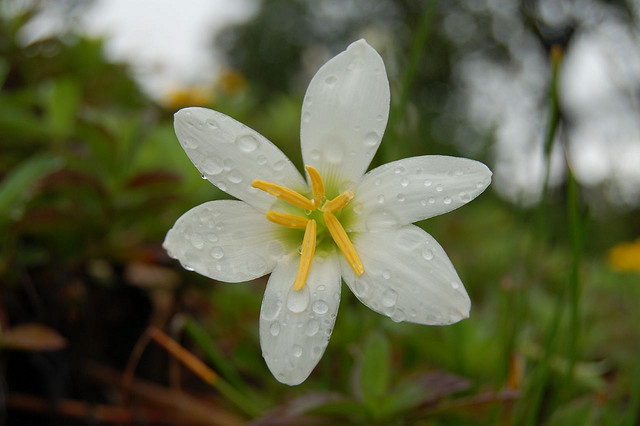Editor’s Note: World Environment day is here. And there’s still so much of pollution all around. Don’t we all want to see a cleaner place? Don’t we all want to protect the beautiful Mother Nature – for our kids and ourselves? Participate in this discussion here to tell us your ideas of you you can protect the natural resources. Some of our members have already shared their thoughts.
Our member mums said:
Water
- Avoid unnecessary wastage of water while brushing, shaving, washing vessels etc
- Check the faucets and repair the faulty tap(even few drops of water, dripped over a period of time results in wastage)
- Switch off the bore well motor before the water overflows from tank
Electricity:
- Turn off lights, tv,computer switch when not in use.
- Remove the plug of cell phones once its charged.
- Use Air condition only when required, close windows and doors while AC is running (it will reduce the energy required to cool the area)
- Whenever possible open windows and make use of fresh air
- While going on 1-2 days trip or vacation, empty the fridge contents and switch it off (this way you will save both electricity and money)
- We all know LED bulbs (compact fluorescent bulb) consume less energy to produce same power as light bulbs
- Switch off the printer and speakers also when not in use
Others
- Every service provider gives the option off getting bills in email, sms or by mail. It is better to opt for sms or email options. Every paper bill generated brings down the tree count indirectly.
Our member aaral said:
- Avoid using plastic containers, bottles, bags etc.
- Kitchen waste i.e vegetable peels, onion skins . egg shells can be converted to garden compost.
- Try having as many plants as possible.
- If one has a garden the perimeter can be planted with trees.
Our member lathaviswa said:
- We can plant new trees (if you have space) or we can give small trees as gift to others.
Our member nihasvin said:
- Teach your kids to not waste.
- Teach them to use dustbins for disposing wastes.(inside and outside the house)
- Make them water the plants everyday.
- Ask questions and create awareness among them regarding the trees,plants and their uses.
- Teach them not to waste water.
Our member chandchak said:
- Water used to clean vegetables can be used to water the plants in our garden instead of just pouring it in the washbasin.
- Every lady has the habit of cleaning the kitchen utensils with water before using it even if it is already cleaned with soap and water. This water can also be used to water the plants.
Our member Riya2012 said:
- You can try classifying waste in your society. One bin for food waste. Second one for plastic /non decomposable waste. Food waste can be land-filled and does not barren land. On other hand plastic/glass can be recycled and hence will not pose any threat to soil and its fertility.
Our member shellysethi said:
- I only wash the laundry when the machine load is full not everyday and sometimes i hand wash my clothes this way i waste less water.and the last rinse i use for watering plants.
Our member tanoshii said:
- Power saving electrical equipments – always use low wattage bulbs that produce low heat and generate as much efficiency as any other. Many companies have come up with power saving tubes, bulbs, refrigerators and air-conditioners. There are so many other equipments too that you can pick based on its consumption levels.
- Reusable Bags and reuse plastic bags – Always buy reusable bags and use them for daily shopping. When you go for vegetable shopping, carry a few extra plastic bags from home, instead of getting more new ones from the shop. These can be reused for quite a while.
- Do not leave electrical equipments on stand-by – That still uses energy. There was a recent survey in London about homes losing as much as £50 a year on electricity bills, simply by leaving on the chargers. It amounts to around INR 4000. Why waste electricity and money? Be it anything at home, in the kitchen or TV, always switch it off. Also saves us from fire hazards.
- Natural Ventilation and lighting – Depending on the weather, ventilate the house naturally by leaving the windows and doors open and save usage of air-conditioners, lights or fans or heaters. Wear suitable clothes and eat right – yes, that can save a lot too! Also use natural lighting when ever possible instead of switching on the fancy chandelier when there is no need. When building a house, its essential that it is properly insulated or has enough windows. It will be a one time cost. This is very important in this day and age when fuel costs more than food.
- Charity – If you plan to dispose clothes or furniture or working electrical equipments, don’t just throw them away. If you don’t want them, someone else might. Give it away to a neighbour or the maid or anyone who you think might be able to use them. Or better yet, call a charitable institution and ask. They are always welcome to contributions.
- Bulk buys – If you live in one city, in one house for long, try buying in bulk. There are two advantages to it – 1) You always save when you buy in large quantities for yourself. Share with neighbours or friends to further minimise cost per person. 2) You save on the packaging material. This is a new concept in many supermarkets in UK now. They sell claning liquids in 1.5/2 ltr bottles, or washing powders in 7kg boxes etc. That saves almost 3 plastic bottles from being used and thrown out or almost 4 cartons of the detergent. makes sense, doesn’t it?
- Dispose batteries, toxic waste and broken electrical equipments appropriately – Everything we use in our day to day life is now electronic and that means there is bound to be a lot of waste too when these equipments stop working. Mobile phone andbatteries, televisions, stereo systems, computers/laptops and batteries, refrigerators or even the small batteries used in remote controls and clocks have to be disposed off properly. There are means available for it. Every package comes with instructions about the disposal of the product contained in it. So do that instead of throwing it in the common bin. As for chemicals used in and around the house, make sure they are also disposed off properly. If possible buy cleaning agents that are bio-friendly.
- Cloth instead of tissues – Use a kitchen sponge or rag cloth instead of disposable tissues in the house, especially kitchen. A hanky is still a good option instead of paper towels or tissues. When you pick up tissues in public bathrooms too, pick up as many as needed and not a whole bunch, half of which is just wasted.
- Bio-friendly versions are available in any product you can name. Be it detergent or toilet cleaners or even dish washing soaps, buy what is marked safe for the planet. Washing machines and dishwashers come with a bio-friendly cycle that uses water at 30 degrees for washing that is supposed to keep the machine and the environment safe, while saving electricity too.
- Another very important mode of saving fuel in this day and age would be car pool or better yet start using public transport when ever possible. Status need not matter when it comes to saving our planet. Using a bus for local travel or the train for long distances instead of driving your car will make a difference.
- Emission check your vehicles as guided by the government.
- About work places – I hate looking at office spaces with their lights and computer being left on all night even when there’s no one there. Ever wonder how much difference they can make by switching them off??
- Worldwide Lights Out with Earth Hour – There is one day in a year that is designated as the day when we could all contribute to saving fuel and energy by switching off all theequipments and lights in our homes or offices for just an hour. Its called the Earth hour and is a small gesture we can all try.
Our member knbg said:
- Can collect all the water that we use for washing rice and dhals in a bucket and give that to feed cows. Vegetable peels collected in a basket to feed goats.Those in city, can talk to the maids and find out if someone keeps these cattle and in some places, they come and collect daily .
- Thinking twice before buying anything made out of plastic…..( attractive items like small plastic boxes, fancy looking water bottles etc.) Even for storing pulses , spices and condiments, I use glass containers of food I bought.( No investment on costly , PET Jars….)
- Re-cycle the tin and plastic food containers into custom made holders, pen stands etc.
- Re-using plastic bags
- Re-cycling Newspapers, snack wrappers in crafts
- Using cloth Kitchen towels. Of course I need to wash it daily






